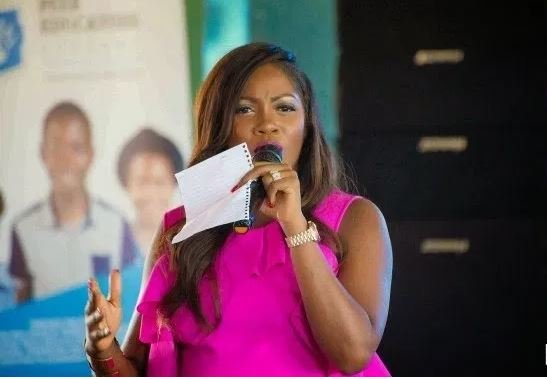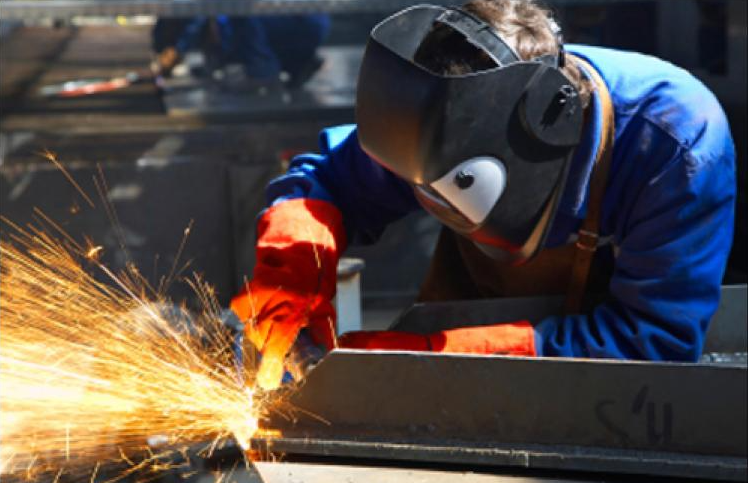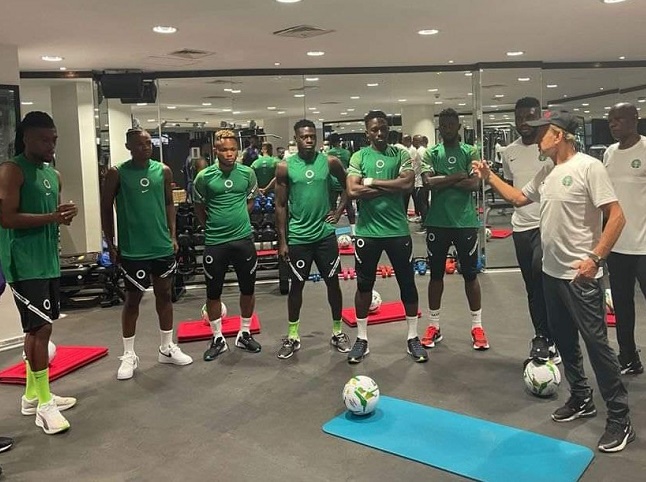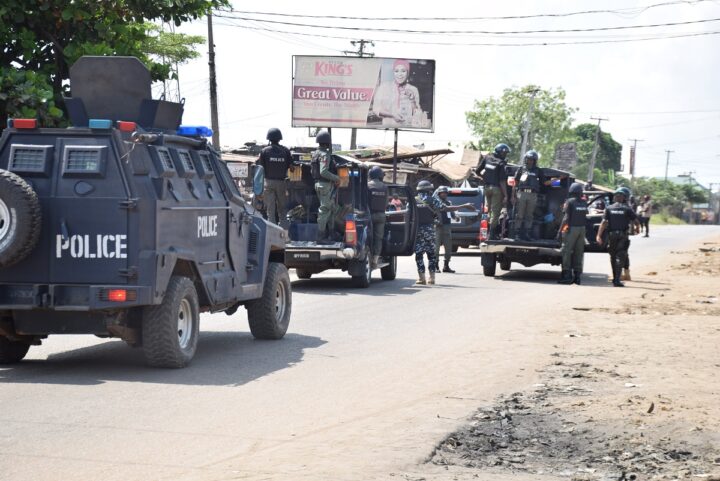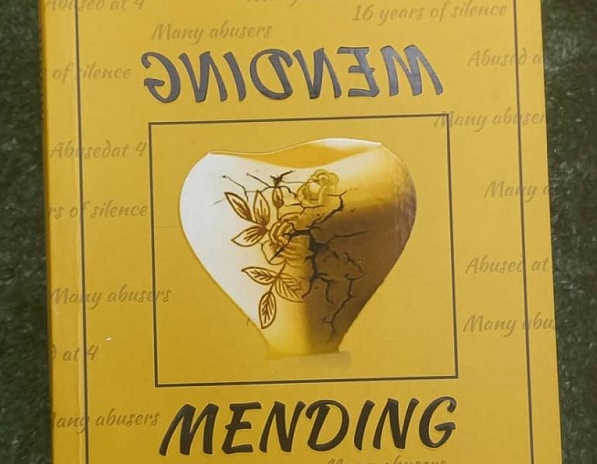The dam spillway which the Federal Ministry of Water Resources said is 100 percent completed.
When the Adada River dam project was flagged off in 2011, residents of Enugu state were filled with joy. They expected that the dam will become a source of energy, create employment opportunities for the youths, aid farming activities, and at the very least, ensure the provision of potable water to their communities. But the joy and hope of 10 years ago have — in the present day — turned into frustration. JUDE CHINEDU, who visited some communities in Nsukka, Igbo-Etiti and Uzo-Uwani LGA which the dam ought to serve, reports on his findings.
It was a sunny Tuesday afternoon in Nguru community, Nsukka LGA of Enugu state. Toiling under the sweltering conditions was Ikechukwu Ugwu, who had spent the entire day watering his pepper and tomato farm. He had stationed a tank in the farm from where he fetched water in a small cup which he applied to the crops. Ikechukwu is only able to do this with the help of his wife.
Ikechukwu spends a greater percentage of his earnings from the farm business to purchase water from vendors who charge N8,000 per tank. For a farming season, Ikechukwu buys 30 truckloads of water, amounting to N240,000. This has taken a serious toll on his finances as he now finds it difficult to take care of his family’s needs.
He said: “We get water from the tanker drivers who get it from the boreholes around Nsukka. Each load is between N8,000 and N9,000 and we buy over 30 loads before the rainy season.”
Advertisement
Ikechukwu is aware that the government was working on a dam just a few kilometres away from his small farm. He wants the dam completed so he can be relieved of the huge expenses and consequently boost the number of crops he is producing.
Dire as Ikechukwu’s situation appears, it is not peculiar. For Thomas Ugwu, a retired civil servant and native of Akachele Obimo in Nsukka LGA, the story is even worse. He can no longer afford to farm during the dry season because of the amount of money involved in getting water for his farm. Since his retirement from civil service many years ago, he had relied solely on the farm for sustenance. If there was a means, Thomas would love to cultivate all year round.
Ikechukwu and Thomas’ plight mirrors the debilitating experience of farmers in other largely agrarian communities in Enugu North, known to have enormous fertile land for agriculture. But for this encumbrance, thousands of farmers in the senatorial zone are willing to engage in large-scale agricultural activities all year round.
Advertisement
Nsukka is one of the largest towns in Enugu state, with a population of 309,633, according to the 2006 census (though currently estimated at 1,500,000). Its ‘cleanest’ sources of water are from Asho, Ajie, Iyi-Nsukka, and Ikwoka Obimo springs located in different parts of the town. Nsukka is home to the foremost University of Nigeria and boasts of abundant human and natural resources, but the town is plagued by acute water shortages, which seem to have defied government efforts.
The springs are nowhere close to meeting the water needs of the people, and the only government-owned borehole is poorly reticulated and often not in use. Because of this, wealthy individuals now provide water for people by sinking boreholes and selling at very exorbitant prices. These water sources are mostly untreated and dangerous to the health of the people. Little wonder the people celebrated the award and subsequent commencement of work on the Adada River dam project in 2011 with much enthusiasm.
According to the Bureau for Public Procurement, the contract for the construction of the Adada River dam and associated works was approved by the federal executive council and awarded to an indigenous contractor, ROUDO Nigeria Limited, in 2010.
The cost of the project, according to the BPE, is N2,578,472,343.28. The project, expected to be built in three phases — damming, water treatment plant, and reticulation with a capacity of about 1.4 million cubic meters of water per year — was supposed to be delivered in 24 months.
Advertisement
Work on the dam did not start until June 2011, when a government delegation led by Godknows Igali, the then permanent secretary, federal ministry of water resources, flagged off the project.
Several promises, none fulfilled
Igali promised that the dam would provide potable water, electricity, and irrigation for agricultural activities, as he also warned the host communities against any act that would delay the project.
Ayogu Eze, the senator representing Enugu North at the time, is credited with attracting the project. He was optimistic that the dam would change lives and promised to ensure that funding would not hinder the speedy completion of the project.
Advertisement
He had said: “I want to assure you that this dam will change the lives of our people; it will change the lives of the people of our senatorial district and above all, it will provide one resource that our people have been crying for. It will provide water to Nsukka because Nsukka is going to be the capital of the new Adada state.”
Sadly, 10 years after the much celebrated flag-off, the Adada River dam project is yet to be delivered, leaving the people hopeless and abandoned.
Advertisement
A visit to ROUDO Nigeria Limited
Our reporter arrived at the construction yard of ROUDO Nigeria Limited in Nkpologu, Uzo-Uwani LGA, about 12:30pm on Friday, March 5, but there was no sign of life at the site. The entrance gate to the yard was shut and heavy construction equipment, which obviously had not been in use for a long time, were seen both inside and outside the yard. A soft-spoken security guard in his late 30s initially offered to provide the contact details of the project manager but later declined after speaking with him on the telephone.
Advertisement
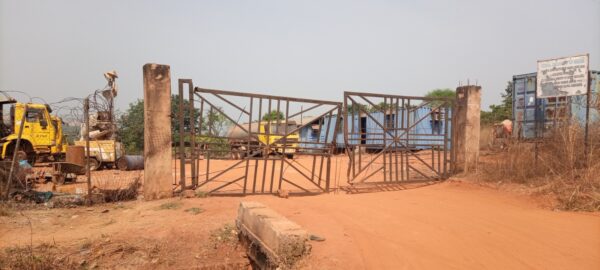
On Tuesday, March 9, our reporter went back to the site and was fortunate to meet the project manager, Justin Ihedioha. Despite persuasions, he declined to grant an interview for fear of being misquoted.
Ihedioha said: “A lot of people have come; there was a guy that came the other day from one of the national dailies. I had an interview with him but what I saw in the news was different from everything we talked about.
Advertisement
“So, it is not right for me to be granting interviews without letting the authorities know, because when it comes out in the paper or on the TV, I’m not the only one that will see it. I’m only a messenger.”
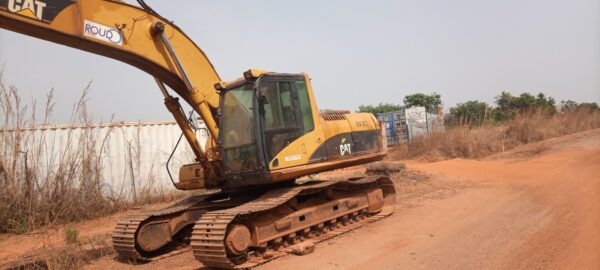
At the dam site
Ihedioha, thereafter, referred our reporter to a certain Adeniyi Fajemiyo, the consultant in charge of the project. When contacted, Fajemiyo said he was not the right person to speak with. When prodded further, he said the project manager was in the best position to speak on the matter. On getting back to Ihedioha, he responded angrily and warned the reporter not to call him again.
While at the site, it was observed that work on the embankment had reached an advanced stage, and the dam holds a large volume of water. Vendors were also seen pumping water into their tanks for onward distribution to nearby communities including Nsukka.
Work on the water treatment plant, which is part of the project, had not started and there was no sign that it would commence anytime soon, leaving water vendors to continue distributing untreated and unsafe water to the people. There is also no visible sign of reticulation equipment at the site.
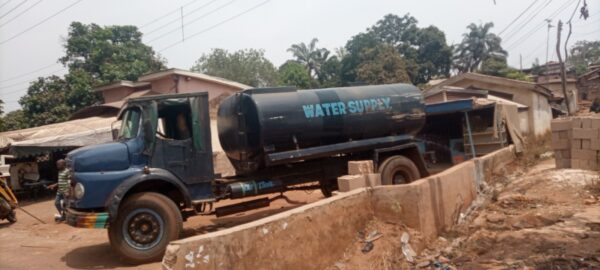
It was also observed that the road connecting Nkpologwu to Akpoga in Uzo-Uwani and other communities in Igbo-Etiti was cut in two as the bridge was blown away. Sources in the community revealed that the dam collapsed on August 14, 2019, a year after the embankment was completed. The collapse had severe ripple effects as property, farmlands, and crops worth millions of naira were lost. Some community members told our reporter that they are afraid of a second collapse.
Despite the losses recorded as a result of the accident, the farmers were left to nurse their pains alone as they did not get any form of compensation from the government.
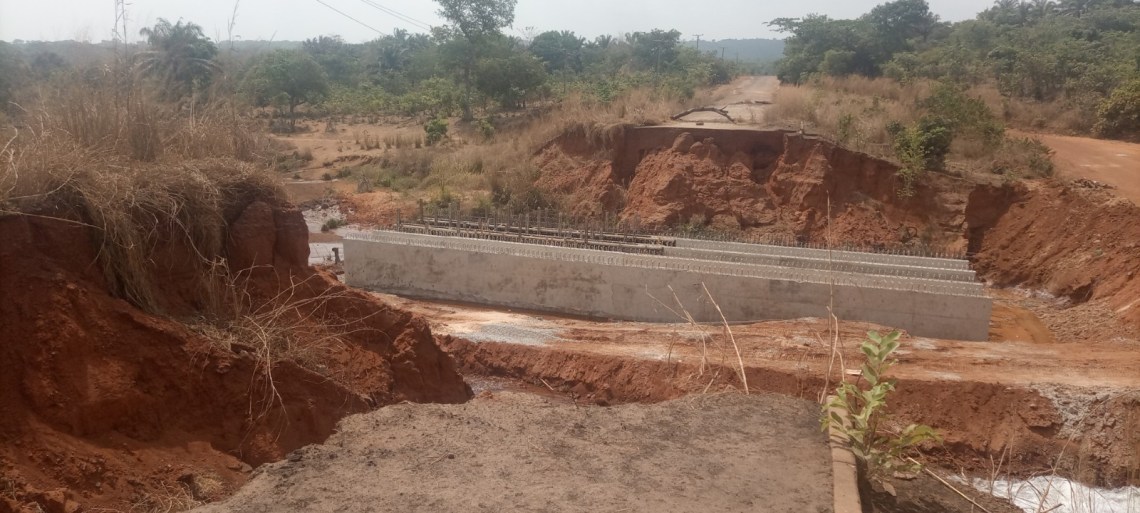
Water everywhere, none to drink
Chijioke Attah, a journalist and chairman, Nsukka Forum, narrated the harrowing experience of the people when in search of potable water. He said the situation is “critical” and complained about the hygiene and quality of the water circulated by vendors.
Attah said: “In the evening and in the morning before the children go to school, you see those carrying barrows and plastic cans going to fetch water, exposing them to avoidable road mishaps. This is not good.”
He added: “You can’t turn on your tap in your kitchen and wash your dishes unless you have money to drill a borehole. It is not good for the well-being of the people. So, the water crisis is really biting and the government has to do something about it.”
Tales of deflated hope
Charles Ochi, the traditional ruler of Useh community in Aku, Igbo-Etiti LGA — one of the three communities on whose land the dam is situated — narrated how work started on the dam but soon stopped for no known reason. Ochi said his people welcomed the news of the project with high expectations as it was the first of its kind around the area and the entire south-east.
“When we were coming for the inauguration, our people went there with the various communities; Aku, Nkpologu, Akpugo. We all went with our various traditional dance groups hoping that in less than two years, the thing would have taken off. They took off in earnest but after four months, work stopped. We don’t know what happened. And when you go there to make enquiries, they will tell you that the other consultants have left and that these are a new group.”
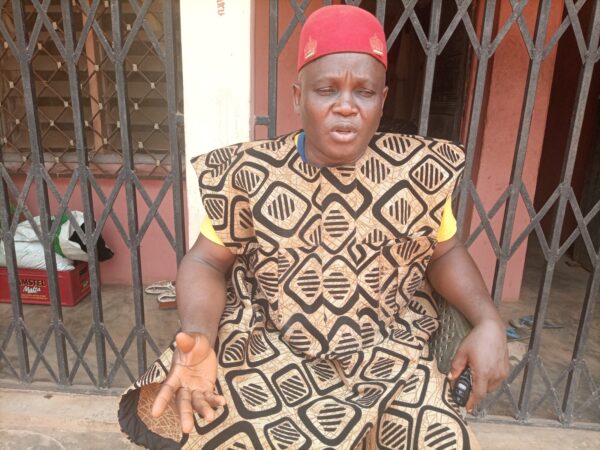
Despite repeated attempts, there has been no form of communication between the traditional ruler and the contractors.
“We were completely cut off. We don’t even know who to hold responsible for certain levels of damages, especially when there was a collapse,” he said.
“The stakeholders are not talking to us. The people who are involved are not talking to us. The contractors are not talking to us. We can’t even point out what is happening. We don’t know who to hold on to. Using your medium, we are calling on the government for a kind of intervention and hasten up whatever it is.”
In the same vein, Vigo Aninefougu, the traditional ruler of Akpugo Ezedike, Uzo-Uwani LGA, recounted the joy with which his community welcomed the dam project. He said they had assumed that the project would be completed in a few years, so his community could start enjoying the benefits of having a dam just like the farmers in northern Nigeria.
Igwe Aninefougu said: “They use dams for agriculture and other purposes but this is the only dam I can hear of in this part of eastern states.
“I don’t know of any other place where we have a dam in this region, especially Enugu state. So, we thought the whole thing will just be in a few years and we will begin to enjoy the benefit of the dam. But unfortunately, the whole thing lingered for so many years.”
He accused the contractor of failing to honour an agreement reached with the community to be supplying them with potable water throughout the duration of the project, thereby exposing his people to contaminated water.
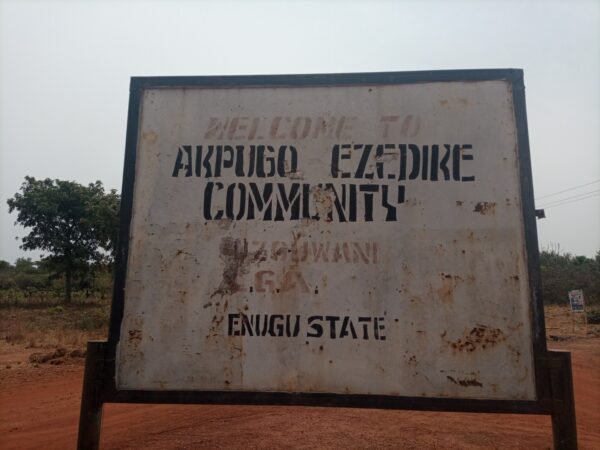
“We don’t have any other area where we get water except Adada. So, we agreed that at the starting point, they were going to supply us with water. That they were going to engage drivers to give us water on a regular basis. You know water is life and you can’t do without water. But those things were never done by the company constructing the dam. Instead, we pay for the water from tankers,” he said.
“In fact, God has been on our side. You see, all these Fulani cattle used to pollute the water. They can drop these faeces in the water while drinking and they march through it, the soil and every other thing will just flow to our side and we drink it. You know God has been saving my people. It has been like that all along. Our belief is that what God created and asked us to take will not be poison to us. That is our belief.”
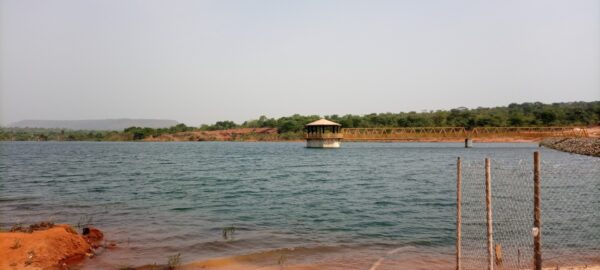
Meanwhile, Attah said he had been monitoring the development at the project site since 2011. Unimpressed with the pace of work, he wrote to the ministry of water resources in August 2020, through the Nsukka Forum which he heads.
He said the ministry blamed the slow pace of work on the “dwindling fortunes of the federal government which has also affected other projects”. He said the ministry claimed to have achieved 65 percent completion of the project, including the damming of the river and construction of the water treatment plant.
Attah said: “Nothing much is happening there. You see that the construction site yard is a ghost place. Nothing is happening there, there is no sign of life, which means that work has stopped there for now. And we all know that this has impacted seriously on the water problem in Nsukka.”
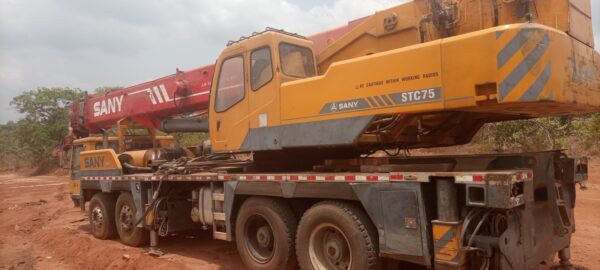
Representatives evade calls, ignore text messages
Our reporter reached out to some national assembly members representing the affected areas but they all ignored calls and text messages sent to their telephone lines. First was Chukwuka Utazi, the senator representing Enugu North. Utazi is an indigene of Nkpologwu, one of the villages hosting the dam project. He is also the chairman, senate committee on primary healthcare and communicable diseases.
Utazi failed to respond to calls put across to him or reply to text messages sent to him regarding the dam and his efforts to revive the project.
Similarly, efforts to speak with Martin Oke, the house deputy chairman on health institutions, who represents Igbo-Etiti/Uzo-Uwani LGA, proved abortive as he ignored several calls and failed to respond to messages sent to him.
Ministry of water resources responds to FOIA request
A freedom of information act (FOIA) request was sent to the ministry of water resources on April 6, 2021. The request sought to know why the project is nowhere near completion; the exact amount released to the contractor handling the project, the efforts of the ministry in ensuring prompt completion, and steps taken to ensure that the project is not below-par.
In a response dated May 4, 2020, Ibrahim O.N, director, legal services, confirmed that the total amount so far released for the project is N2,778, 193,704.88.
The ministry said work on the dam bottom outlet, raw water intake, tower, and access bridge is 100 percent completed. It said the dam embankment was 99 percent completed while work on the access road and culverts is at 60 percent completion stage — and that the water treatment plant was 27 percent completed.
But contrary to what is obtainable on the ground, the ministry said the construction of the dam spillway had been fully completed.
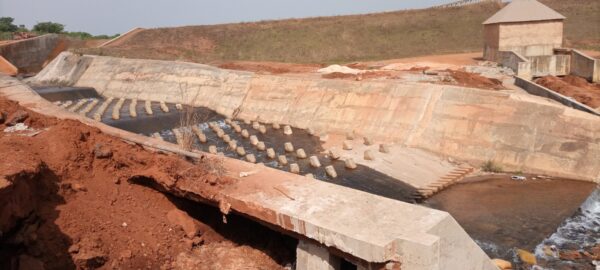
The letter further reads: “Based on the current situation of works going on at the site, the percentage of completion of works on the Dam Component is about 97 percent complete while the overall completion Dam and the Treatment Plant is 71 percent.”
There was, however, no response to the request for information on why the project had lingered for so long; the standard evaluation strategy adopted for the project, and the completion date.
This investigative report was supported by MacArthur Foundation and the International Centre for Investigative Reporting.
Add a comment
